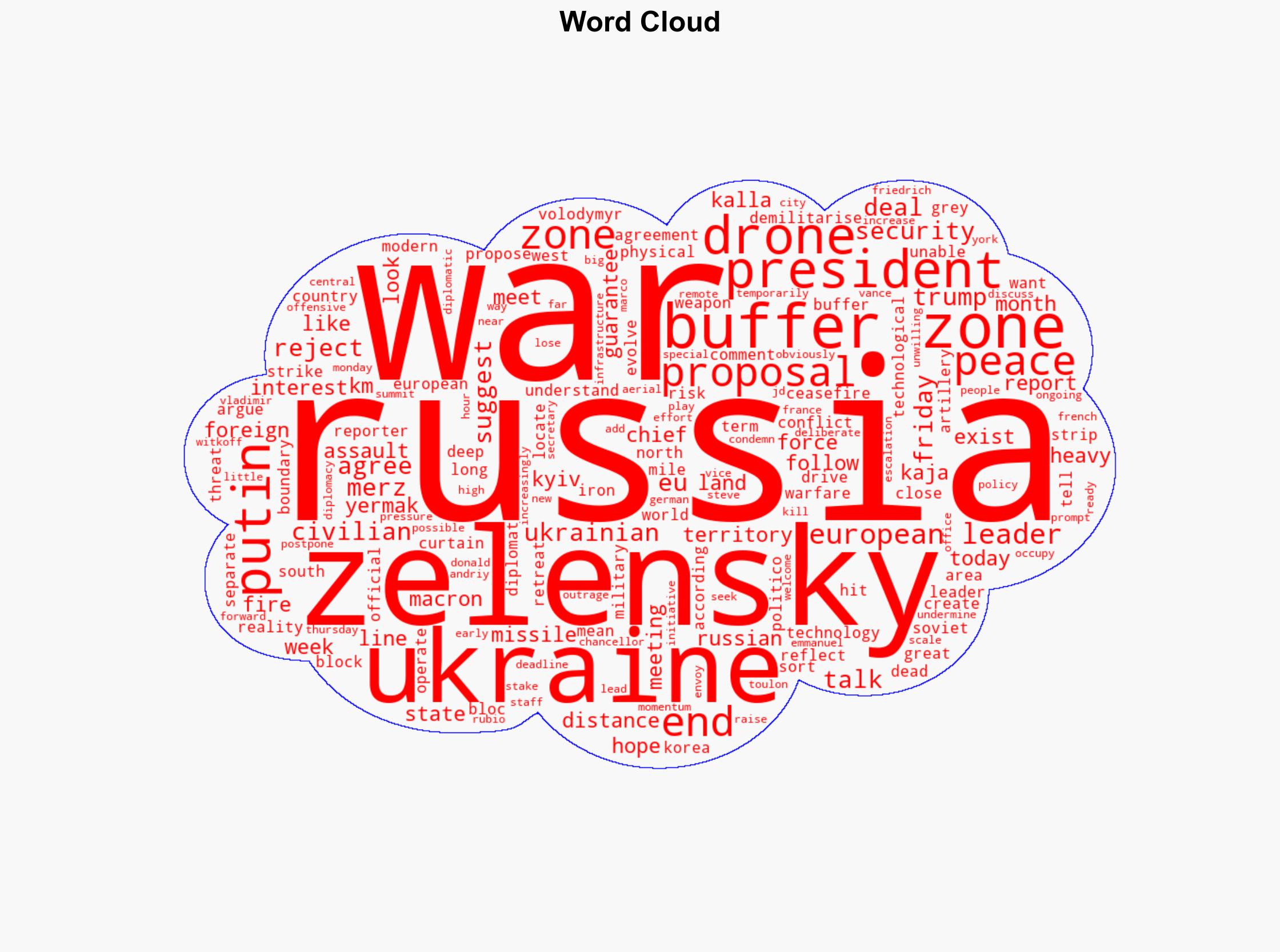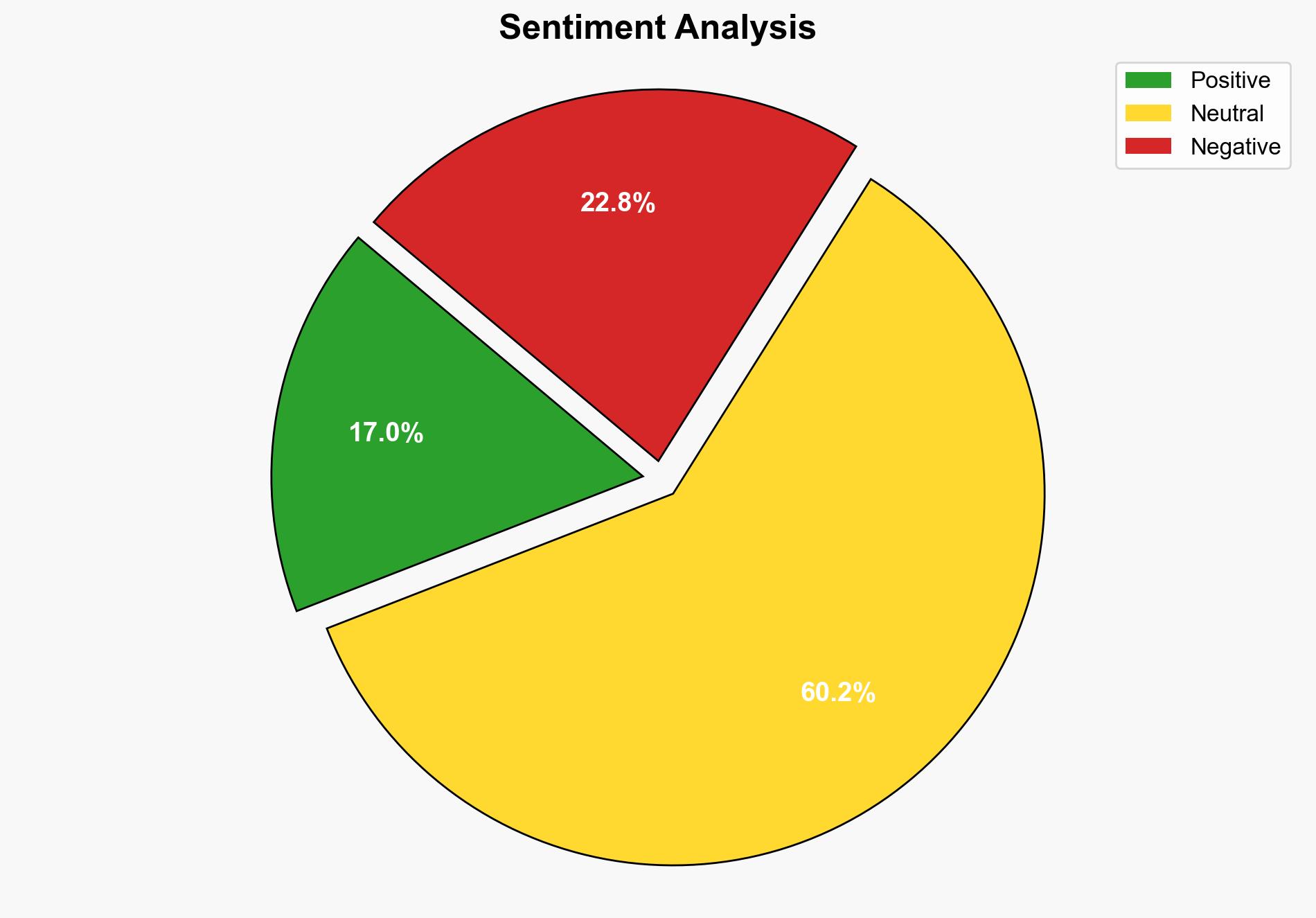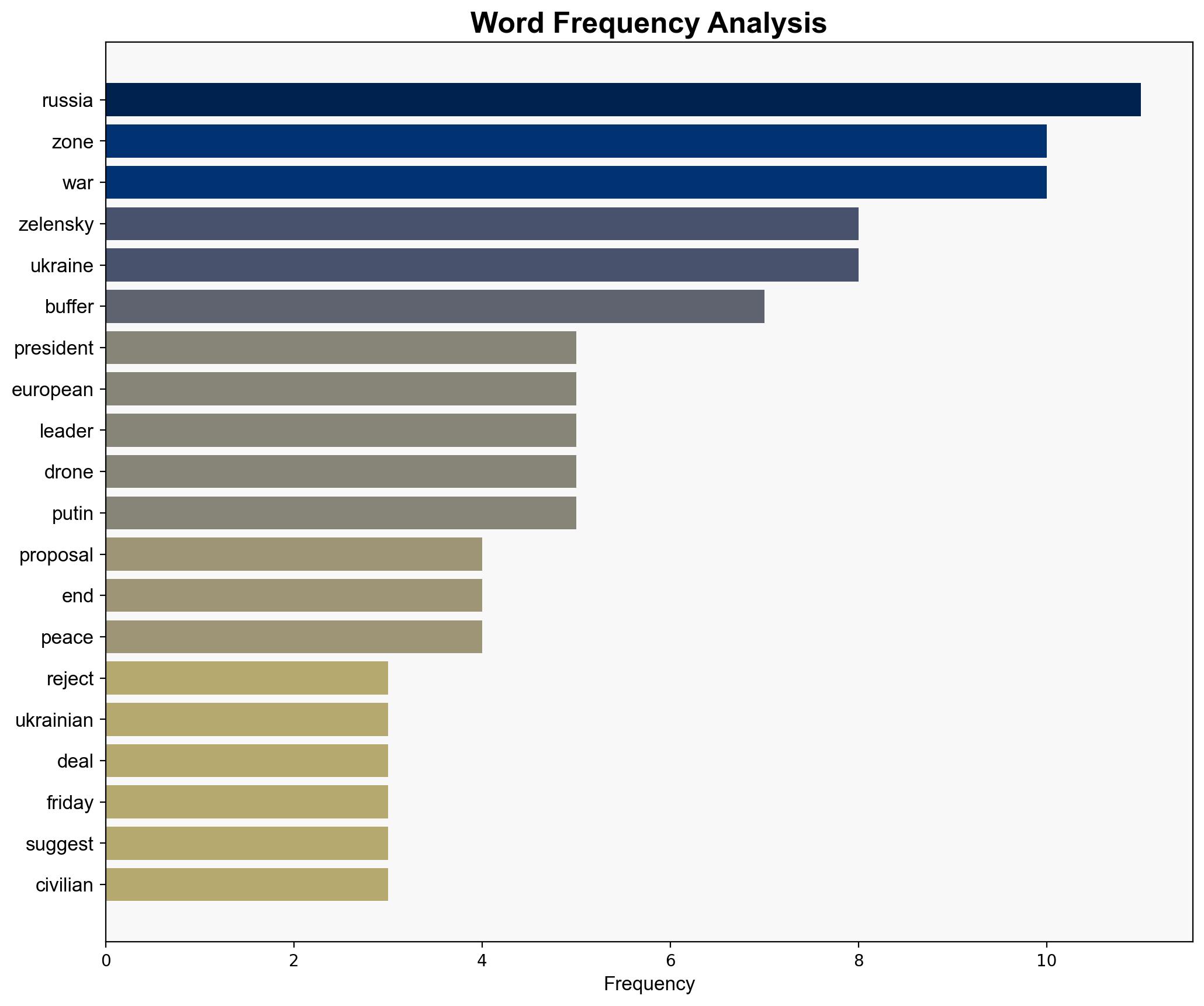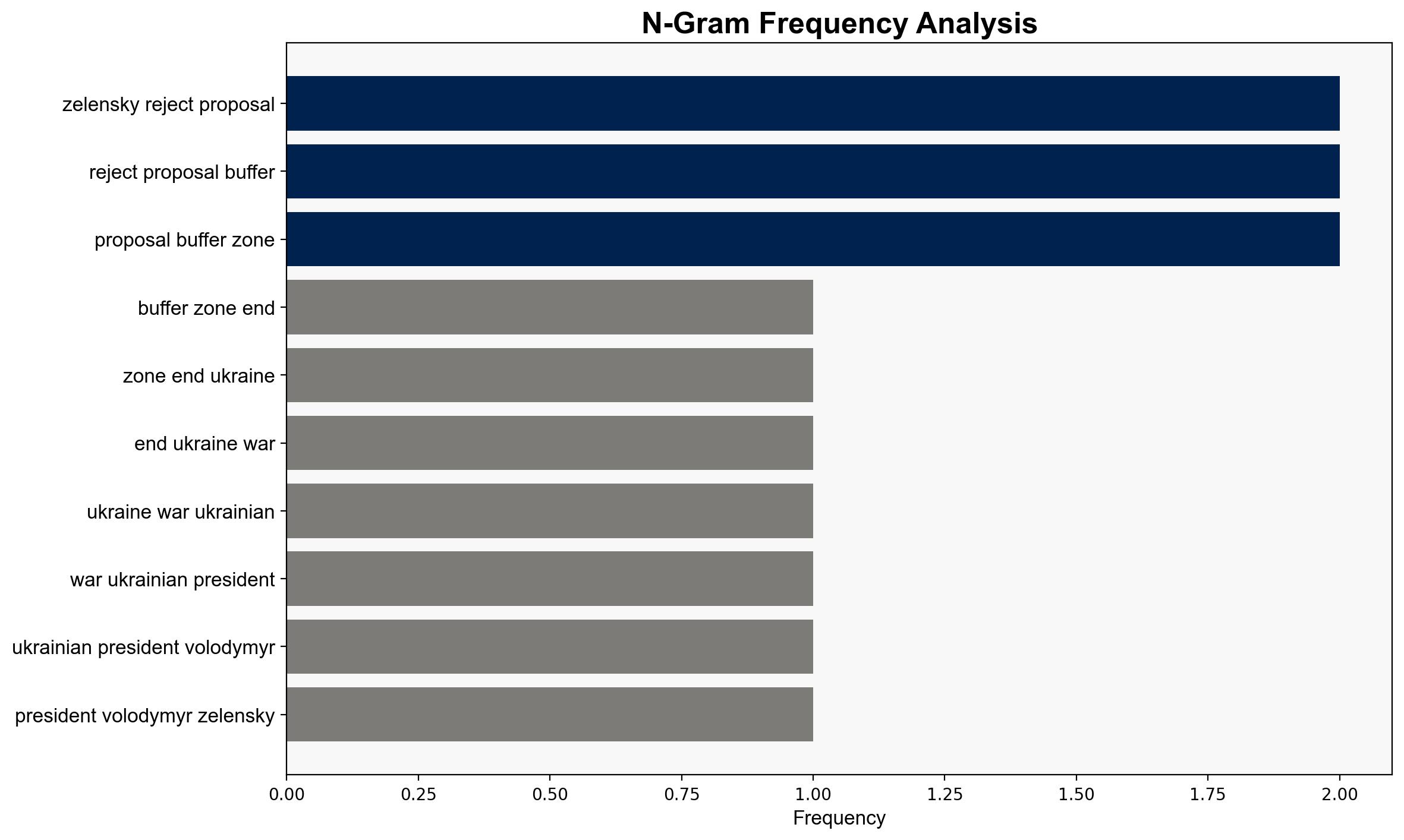Zelensky rejects proposals for buffer zone to end Ukraine war – BBC News
Published on: 2025-08-29
Intelligence Report: Zelensky rejects proposals for buffer zone to end Ukraine war – BBC News
1. BLUF (Bottom Line Up Front)
The most supported hypothesis is that Ukraine, led by Volodymyr Zelensky, perceives the buffer zone proposal as a strategic disadvantage, potentially leading to territorial concessions and emboldening Russian military tactics. Confidence in this hypothesis is moderate due to the complex geopolitical dynamics and ongoing diplomatic efforts. It is recommended to enhance diplomatic engagement with European allies to develop a comprehensive security framework that addresses both Ukrainian and broader regional security concerns.
2. Competing Hypotheses
1. **Hypothesis A**: Zelensky’s rejection of the buffer zone is primarily driven by a strategic assessment that it would weaken Ukraine’s territorial integrity and military position, effectively conceding ground to Russia.
2. **Hypothesis B**: The rejection is a tactical move to maintain negotiation leverage, aiming to pressure European and Western allies to provide stronger security guarantees and military support.
Using ACH 2.0, Hypothesis A is better supported by the evidence of Zelensky’s explicit concerns about territorial concessions and the strategic disadvantage posed by a demilitarized zone. Hypothesis B is less supported due to the lack of direct evidence indicating a broader negotiation strategy.
3. Key Assumptions and Red Flags
– **Assumptions**: It is assumed that Zelensky’s public statements reflect Ukraine’s genuine strategic priorities. Another assumption is that European leaders are unified in their approach to the conflict.
– **Red Flags**: The potential for misinterpretation of Zelensky’s statements by international actors. The absence of detailed proposals from European leaders raises questions about the feasibility and intent behind the buffer zone suggestion.
4. Implications and Strategic Risks
The rejection of the buffer zone could lead to increased military tensions, as Russia might interpret this as a refusal to de-escalate. Economically, prolonged conflict may strain European resources and impact global markets. Geopolitically, failure to reach a consensus could weaken NATO’s cohesion and embolden other regional adversaries. Cybersecurity threats may escalate as both sides leverage technology in warfare.
5. Recommendations and Outlook
- Enhance diplomatic efforts with European allies to formulate a robust security framework that includes clear commitments to Ukraine.
- Explore alternative conflict resolution mechanisms that do not compromise Ukraine’s territorial integrity.
- Scenario Projections:
- Best Case: Successful diplomatic resolution with enhanced security guarantees for Ukraine.
- Worst Case: Escalation of military conflict leading to broader regional instability.
- Most Likely: Continued diplomatic stalemate with sporadic military engagements.
6. Key Individuals and Entities
– Volodymyr Zelensky
– Vladimir Putin
– Friedrich Merz
– Emmanuel Macron
– Kaja Kallas
– Andriy Yermak
– Steve Witkoff
– Marco Rubio
– JD Vance
– Maria Zakharova
7. Thematic Tags
national security threats, cybersecurity, counter-terrorism, regional focus





